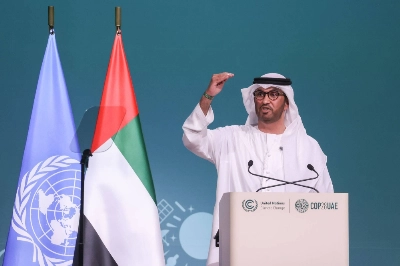As the world casts its eyes toward the ongoing COP28 conference in Dubai, we are faced with a stark reality: Our global climate efforts are falling critically short of the mark.
Traditional approaches to problem solving are clearly inadequate and many of our systems — built for a bygone era — are not just failing to address today's challenges, but are often exacerbating them. The climate crisis, along with other complex social and environmental issues such as plastic and chemical waste, inequality, and aging and shrinking populations demand a fundamental rethink of how we live within our societal and planetary boundaries.
This has been conceptualized by economist Kate Raworth's “doughnut” model, a visual framework for sustainable development consisting of an inner and outer circle: The first represents the social foundation "needed to ensure that no one falls short on life’s essentials" and the second is the ecological ceiling that we must respect to "not overshoot our pressure on Earth’s life-supporting system."



















With your current subscription plan you can comment on stories. However, before writing your first comment, please create a display name in the Profile section of your subscriber account page.